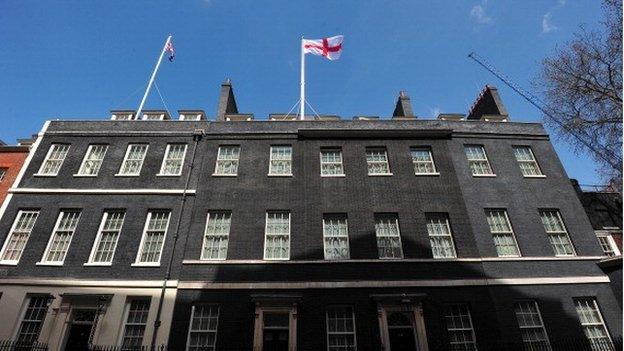'Support' for English devolution - BBC poll
- Published
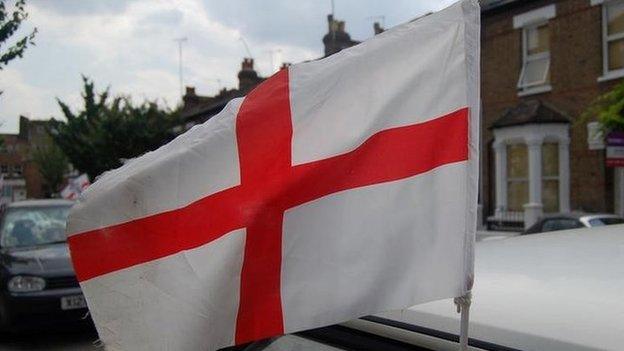
The poll suggested 82% of people supported giving more decision making powers to local areas
Some 80% of people in England support having more powers devolved to local areas, a poll on devolution commissioned by the BBC has suggested.
The poll also suggested 66% support the idea of allowing only MPs from England to vote on laws in the Westminster Parliament that affect only England.
ComRes spoke to almost 3,000 adults in England by telephone between 17 and 27 October.
The government said it wanted to shift power "into the hands of local people".
Votes on England only laws
-
67% of people living in the South East support only English MPs deciding English issues
-
74% of people in the East Midlands backed the plan – the highest number in England
-
61% of people in London supported the idea - the lowest number in England
The Scottish independence campaign has ignited debate as to whether other parts of the UK should have more say on their futures.
After the "No" vote in the Scottish referendum, the Prime Minister David Cameron also voiced support for the idea of "English votes on English laws".
'Share of the pie'
The poll found that in all regions across England, fewer than one in five people say they wish Scotland had voted to leave the UK, while at least four in five say they are glad it decided to stay.
While there is agreement across all English regions that too much of the country's resources is spent on London, at least two thirds of people in each region agree Britain is better off for having a strong capital city.
Capital spend
-
48% of people living in the South East agreed too much of the country's resources were spent on the capital
-
78% of people in the North East - the highest figure in England - thought too much was spent on London
-
43% of Londoners agreed too much resource was spent on the city
Dr Mark Stuart, assistant professor of politics at the University of Nottingham, said he was "not surprised" by the results.
He said appetite for devolution had been a "growing trend" and although people were still split on the idea of an English Parliament, support had grown over the past decade.
"I think people in northern England, for example, are seeing how the referendum has benefited Scotland and they want a share of the pie."
The English vote
-
74% of people living in the East Midlands would support plans to allow only English MPs to vote on issues which affect England alone
-
62% supported the idea of setting up an English parliament – against an England average of 53%
Deputy Prime Minister Nick Clegg said: "I have worked tirelessly to hand power from Westminster into the hands of local people who know their areas best."
Mr Clegg said the government had embarked upon "the biggest decentralisation of power for decades".
He said: "I want to go much further, which is why I launched Northern Futures to invite ideas from people who live, work and do business in the North to tell us what they need to help them grow.
"I'm hosting a major summit for Northern Futures in Leeds on Thursday to discuss and debate these ideas and come up with a plan for northern prosperity."
Support 'greater than ever'
Professor Tony Travers, from the London School of Economics and Political Science, said: "Most people and politicians are broadly in favour of localism. People feel cut off from power.
"Centralisation has been growing since 1945, but the response for devolved powers is now greater than ever, probably because England is such a centralised country.
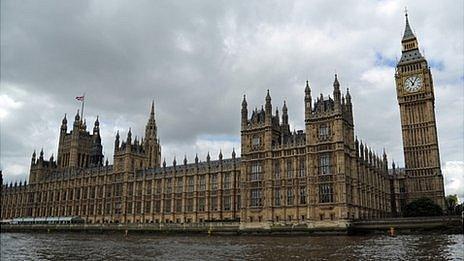
Dr Mark Stuart said there was a "fairly strong anti-Westminster feeling"
"What's remarkable is politicians either don't believe the public support or choose not to act upon it.
"At the moment the money comes down from narrow chunks from Whitehall, and perhaps it could be better distributed if local areas had more powers."
However, Prof John Curtice, from Strathclyde University, said the question asked in the poll needed to be more specific.
He said people might interpret "local area" in different ways and the result could change if people were asked about tax, education and policing separately.
The poll has been carried out in conjunction with a series of regional debates about English devolution that can be seen on BBC One on Wednesday at 22:35 GMT.
- Published5 November 2014
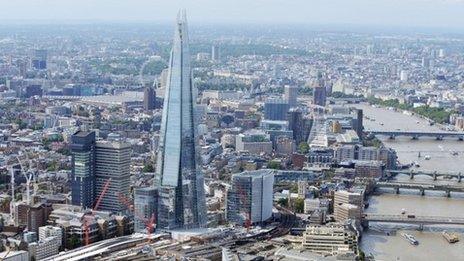
- Published3 November 2014
- Published3 November 2014
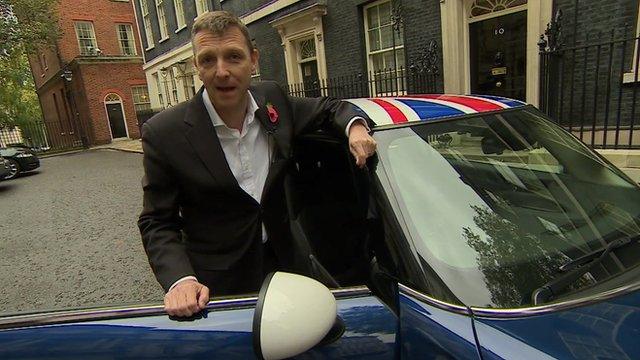
- Published14 October 2014
